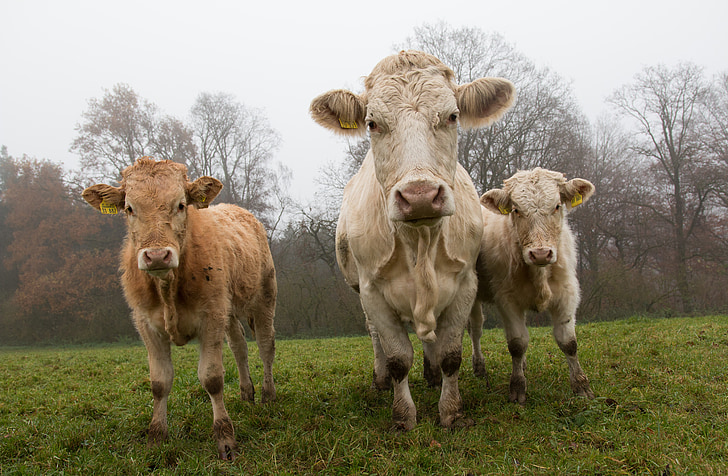When we think of farming, our minds often conjure up images of vast fields with rows of crops soaked in golden sunshine. But what about the animals that roam these bountiful landscapes? Organic animal farming is gradually gaining prominence as a sustainable and ethical alternative to conventional farming practices. It is a world where the principles of organic agriculture extend beyond just fruits and vegetables to encompass the well-being and welfare of the animals that grace our plates. In this article, we will take a captivating journey into the realm of organic animal farming, exploring its fundamental principles, benefits, and the role it plays in creating a harmonious coexistence with nature. Embark on this enlightening adventure and discover the artistry of nurturing and caring for our four-legged companions.

Heading 1: A Closer Look at the Principles and Benefits of Organic Animal Farming

About Organic Animal Farming
Organic animal farming is a sustainable and ethical practice that focuses on providing high-quality, nutritious products while promoting animal welfare and minimizing environmental impact. By adhering to strict organic standards, such as feeding animals with organic feed and avoiding the use of antibiotics or growth hormones, organic farmers ensure that their animals are raised in a natural and healthy manner. This method of farming also benefits consumers, as it provides them with products that are free from harmful residues and are rich in essential nutrients. Additionally, organic animal farming promotes biodiversity, soil fertility, and overall ecosystem health, making it a holistic and responsible approach.
- Enhances the well-being of animals
- Promotes environmental sustainability
- Produces healthier and safer food products
- Supports biodiversity and ecosystem health
- Preserves natural resources
Embracing organic animal farming is not only a choice for conscious consumers but also a step towards a more sustainable and resilient food system for future generations.
Heading 2: Practical Tips for Transitioning to Organic Animal Farming

Practical Tips for Transitioning to Organic Animal Farming
- Ensure a suitable land area that supports organic practices, allowing animals to roam freely and graze on organic pasture.
- Prioritize the selection of organic feed, free from pesticides and genetically modified organisms, to maintain healthy and nutritious diets for the animals.
- Implement a strict record-keeping system to track expenses, animal health, and organic certification requirements.
- Build strong relationships with organic suppliers to source organic bedding, fertilizers, and veterinary services.
- Utilize natural methods for pest control and disease prevention, such as companion planting and rotational grazing.
- Educate yourself and your team on organic farming practices to stay updated with the latest innovations and techniques.
Transitioning to organic animal farming requires dedication and careful planning, but the rewards of sustainable and environmentally friendly practices are immeasurable.
Closing Remarks about Introduction to Organic Animal Farming.
As we come to the end of our exploration into the world of organic animal farming, we hope you have gained a deeper understanding and appreciation for this sustainable and compassionate approach to raising livestock. From the refreshing sight of free-roaming cows, contently grazing upon lush, pesticide-free pastures, to the joyful chorus of chickens happily scratching and pecking in the sunlight, organic farming breathes life into a harmonious coexistence between humans, animals, and the environment.
Perhaps, as you’ve journeyed through this article, you’ve discovered the true essence of organic animal farming – a holistic philosophy rooted in respect for nature and the well-being of the creatures we share this planet with. By upholding rigorous standards of animal welfare, eliminating the use of harmful chemicals and genetically modified organisms, and promoting the biodiversity of our ecosystems, organic farming offers a beacon of hope for a more sustainable future.
By embracing organic animal farming methods, we can make a conscious choice to support ethical practices that prioritize the overall health and happiness of our animal companions. From the nourishing and wholesome produce that graces our tables to the preservation of our beautiful landscapes, choosing organic means leaving a positive impact on our world.
We invite you to embark on your own organic journey, whether it’s by supporting local organic farmers, starting a small backyard farm of your own, or simply making informed choices about the food you consume. Together, we can build a brighter future for animals, humans, and the planet we affectionately call home.
Thank you for joining us on this enlightening adventure through the world of organic animal farming. As we bid you farewell, we encourage you to share this knowledge with others and spread the message of sustainability and compassion. Remember, every small step towards a more organic and ethical way of farming counts – for the animals, for our health, and for the world we share.
